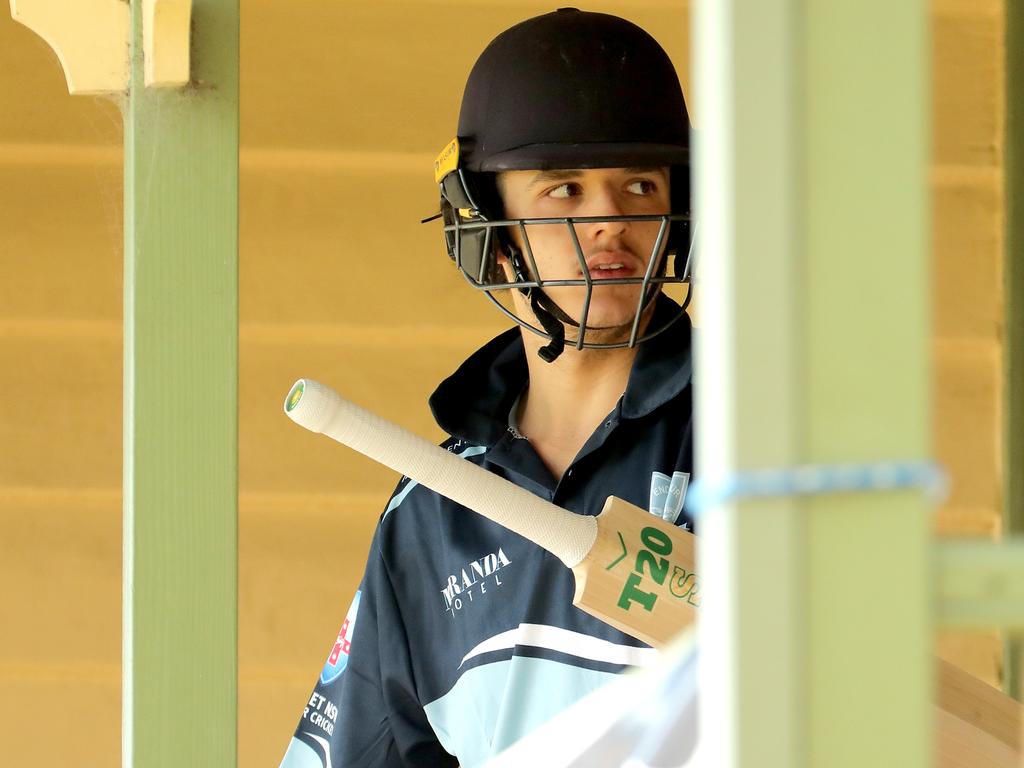New South Wales are languishing on the bottom of both the Sheffield Shield and domestic One-Day cup ladders, and in the search for answers, cricketers across the state are angry.
As the biggest state with the strongest club competition not only in Australia, but arguably anywhere in the world, New South Wales traditionally produces the lion’s share of Australian representatives.
Watch BBL12. Every game live and ad-break free during play on Kayo. New to Kayo? Start your free trial now >
During the Boxing Day Test, former Australian fast bowler Stuart Clark exploded on ABC Radio, saying Cricket NSW was, “fascinated with picking 19-year-olds and not those who have earned the right to play.”
Clark sits on the board of Sutherland District Cricket Club, home to Steve Smith, Shane Watson and young gun Sam Konstas.

MORE COVERAGE
‘Gobsmacked’: Steve Smith smacks ANOTHER century before horror ‘bloodbath’
‘Should be out’: Pakistan veteran’s bizarre move against Aussies sparks debate
‘Mooney magic’: Aussie opener’s career-best demolition in series whitewash
As the level below domestic cricket, first grade is generally considered the traditional proving ground for prospective professional cricketers, but sits alongside under-age pathway and academy programs run by the state associations.
Grade cricketers Josh Brown and Paddy Dooley have excelled in the Big Bash this season for the Brisbane Heat and Hobart Hurricanes respectively, surpassing all expectations.
Brown works full-time making cricket bats, while Dooley is a corporate lawyer by day.
Players, coaches and grade administrators alike are livid at the situation in NSW, which leaves players they feel are deserving of higher honours out on the curb, and looking elsewhere for opportunities.
One top first-grade batter, who wished not to be named, told news.com.au, “I felt like I wasn’t getting an opportunity.
“I kept getting told ‘we’re monitoring you’, but without any feedback or movement.”
Another top first-grade bowler said “I feel as though New South Wales won’t offer me anything, irrespective of how I go this year.”
“I don’t know what they want me to do.
He says he hadn’t spoken to Cricket NSW for four years before being named as an injury cover in a representative fixture recently.
“When they do pick players that are performing in first grade, it’s only at the end of the season in dead rubbers or when a pathway player gets injured,” the bowler said.
“If you score a hundred at a national tournament against teenagers, you’re practically a guarantee of higher honours or a contract.”
“It’s a disgrace at the moment”, said one first-grade assistant coach.
“Definitely pathways getting preferential treatment, grade results mean nothing.”
“They (Cricket NSW) feel like they’ve invested in players, and so feel obligated to select them,” said one general manager.
One first grade captain says that the detrimental focus on pathway cricket over open-age men’s cricket is not a problem unique to New South Wales.
“It shouldn’t be a surprise that the Stars and the Renegades are the two least successful teams in the Big Bash, and they’re also both run directly by Cricket Victoria who have a vested interest in proving the viability of the pathway programs,” he said.
The sustainability of picking players as young as 12 for representative state sides that remain the focus of the elite pathway has also been questioned, with one first-grade head coach saying “there needs to be empathy for players that develop late.
“There’s loads of players in first and second grade that could play Big Bash or first-class cricket tomorrow, who aren’t being seen because opinions about them are formed when they’re 13, 14, 15 years old,” the first-grade coach said.
The perception of grade cricket being pushed to the side is not limited to the top players at each grade club, now officially referred to as Premier Cricket after a 2016 Cricket Australia directive.
Sam Perry, speaking on the Grade Cricketer podcast about Heat batter Josh Brown, said, “I do think grade cricketers have been really maligned at the pro level”.
“If you come up through grade cricket and you’re not doing 17s and 19s, you’re ultimately not accepted by the commentators.”
“You would think he’s playing in bare feet in his driveway with a wheelie bin and a tennis ball,” Perry said.
Co-host Ian Higgins joked, “I think they should change the name to something maybe more grandiose, like ‘Premier’ cricket.”
Cricket NSW’s Chairman of Selectors and Head of Male Cricket, former Australia international Michael Klinger, says it is “very clear that if you’re performing well in Premier Cricket, then those who are knocking the door down will get those opportunities”.
Asked about Stuart Clark’s remarks on ABC Grandstand, Klinger said: “Absolute respect to Stuart Clark and for his standing in the game which is huge, but all he had to do if he wanted to was pick up the phone to me and have these discussions.”
Klinger says that there is a very clear structure of communication between head coaches of the 20 Premier Cricket clubs in New South Wales and the representative coaches.
“We have a feedback system that every head coach has access to, to send back to me weekly, and most of the coaches are very good with it,” Klinger said.
“Every Monday I receive information from the head coaches – what I ask of them is information like the wicket conditions, who performed well from their team but more importantly the opposition.”
Klinger says there are plenty of examples of players that are coming through the Premier Cricket system and being rewarded for their performances at that level.
“Blake Nikitaras is the perfect example, smashed the door down with runs after he came back from injury, got picked in the second XI, got hundreds there and then debuted for New South Wales.
“Matthew Gilkes is another one I can throw up, he went back, made double hundreds in Premier Cricket – he even had a Shield game that finished on a Friday, then went back and got 200 off 150 balls to help UNSW win a game in a run chase, and has been back in the Shield team since, all with a broken finger.”
Asked about clubs such as Manly-Warringah and Northern Districts that have had particular success in producing players that earn representative honours, Klinger said, “Manly and Northern Districts are two of a group of clubs that are extremely open and good in their communication with myself and the New South Wales coaches.
“They’re very good in giving us feedback on how themselves and opposition players are playing against them, they’re two of the clubs that lead the way in that.”
Klinger also says that the selection panel, consisting of himself as chairman, David Freedman, Anthony Clark and interim head coach Greg Shipperd, attend first grade fixtures every week.
“I went to Manly against Sutherland this week, and between three selectors and the coach, we get out to games every week,” Klinger said.
In regards to New South Wales sitting at the bottom of both domestic competitions at the moment, Klinger was optimistic about the Blues’ chances to make the Sheffield Shield final, and disputes they are overly reliant on youth.
“There’s still four Shield games to go, if we win all four games we can still make a final,” Klinger said.
He pointed to the side selected for the Blues’ most recent fixture against Victoria at the Junction Oval, which had no players under the age of 23.
“Where’s the young in that?” Klinger asked.
“We (also) have Greg Shipperd in on an interim basis now, that’ll have a big influence, and there’s a lot of players now that are pushing really hard in Premier and Second XI level.”

